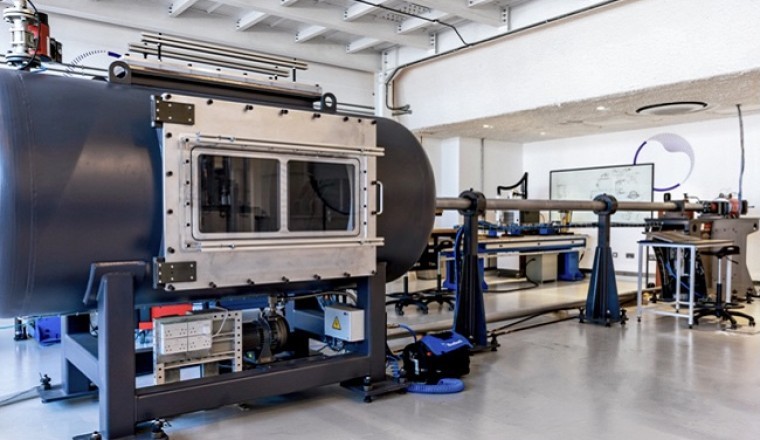
Abu Dhabi, United Arab Emirates: Technology Innovation Institute (TII), a global research center and applied research pillar of Abu Dhabi's Advanced Technology Research Council (ATRC), today announced the launch of its Advanced Materials Research Center’s (AMRC) Impact Lab. The new project marks a first for the MENA region and provides an ideal test bed for trialing state-of-the-art materials, laminates and composites.
The cutting-edge lab is well aligned with AMRC's vision to bring advanced materials to a stage where they are ready to transition from lab to industry. Tests are conducted under a range of impact-related environments, from assessing structures on their velocities, temperatures and energy absorption rates. The state-of-the-art equipment will be used to evaluate the behaviors of the materials that help develop breakthrough solutions.
Capable of characterizing metallic, polymeric, ceramic and composite materials at speed into prototypes with real-world applications, the key outcomes that the lab is presently working towards will help prevent space rovers from crashing and create helmets, bumpers, tyres, and car batteries that can withstand explosions – to highlight just a few. Innovative lightweight structures designed to absorb impact energy can be also used in helmets for sport, riding motorcycles, as well as horseback riding. AMRC’s research team attributes these findings to impact and material science.
Commending the AMRC team on its achievement, Dr. Ray O. Johnson, CEO, TII, said: “This is an extremely encouraging note on which to start the new year. We are confident that our research centers will continue to achieve similar wins – one breakthrough at a time. At TII, we are committed to offering our researchers an enabling environment to work on their collaborative and proprietary research projects and fast-track innovations to the marketplace.”
Dr. Mohamed AlTeneiji, Chief Researcher, Advanced Materials Research Center, said: "We are proud to launch this lab, the outcome of months of planning and hard work, to ensure that it is capable of testing new technologies related to materials impact, as well as new manufacturing processes. We aim to provide cutting-edge tech solutions to companies in the UAE and around the world, and to contribute through developing IP and filing patents to the region’s tech autonomy."
Among the futuristic tech devices available at the lab are the Universal Testing Machine that determines the material’s tensile, compression, and bending properties. The Split Hopkinson
Pressure Bar, which is a first in the region, measures the material properties during impact and can read temperatures from as low as -60 °C to as high as 225 °C
The Gas-Gun Projectile Launcher is also one of a kind in the Middle East. Capable of simulating ballistic, space debris, or bird impacts on aircrafts, this device launches a gas-like substance at up to 1,000 m/s with a high-velocity impact. Meanwhile, the Drop Tower studies effects on material structures similar to those in a car crash or on a helmet following an accident. The machine can configure impact of up to 25 m/s in a low-velocity impact setting, allowing researchers to optimize results to meet user needs and step up the safeguards to cushion them from severe impacts.
Dr. Rafael Santiago, Lead Researcher on the Energy Absorption team at AMRC, noted that the Impact Lab is fully compliant with international safety regulations and will explore new materials to analyze their impact and blast properties.



















Facebook Conversations
Disqus Conversations